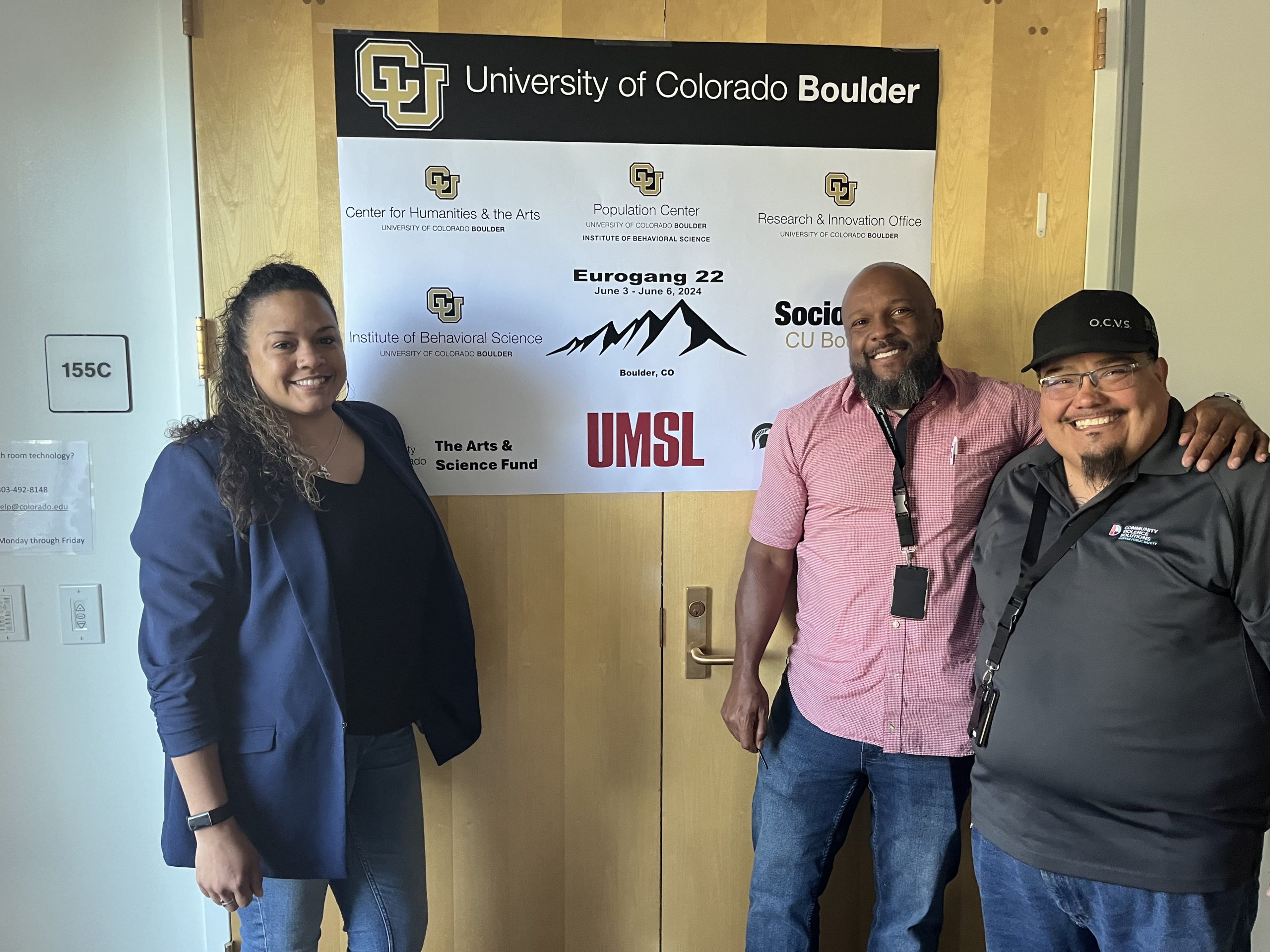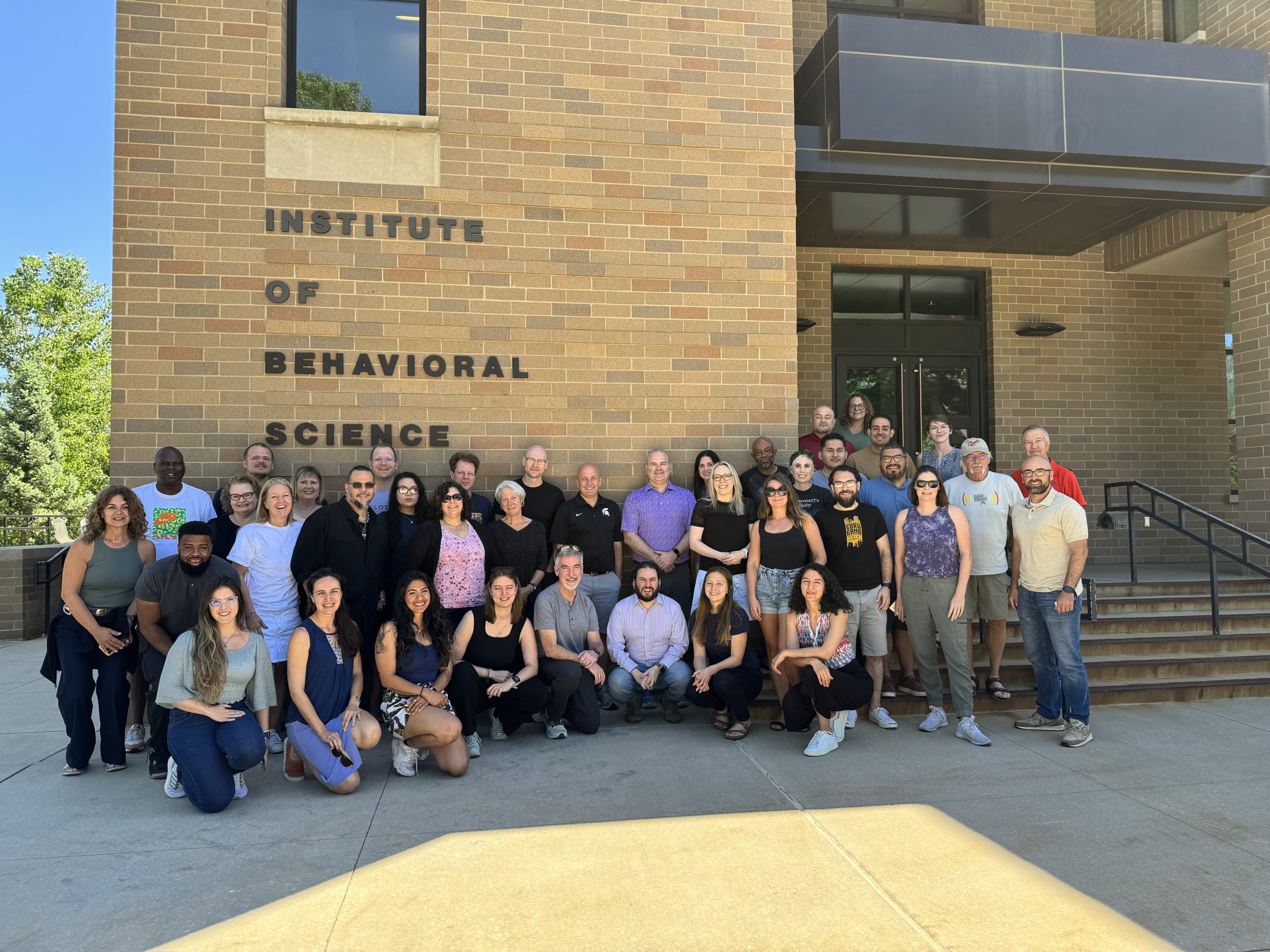Last month, the Eurogang Program of Research held their 22nd annual workshop at the Institute of Behavioral Science (IBS) in Boulder, CO. Professor of Sociology and IBS Fellow, David Pyrooz, as well as Jose Sanchez, ’24 sociology doctoral graduate and incoming assistant professor at Texas Christian University, secured funding to host the workshop for the first time at CU Boulder.
The Eurogang Program takes a multi-national, comparative and interdisciplinary approach to study gangs and troublesome youth groups across the globe. Eurogang XXII consisted of presentations, roundtables, and breakout sessions. Nearly 50 researchers from 11 countries attended.
“The University of Colorado Boulder has a longstanding reputation for conducting cutting-edge research in criminology. A workshop like this, which was attended by some of the very best minds in the field, is a testament to our efforts to think internationally and act locally,” says Pyrooz. “I can think of few places better aligned with the objectives of the Eurogang Program of Research than the Institute of Behavioral Science, which strives to tackle pressing societal challenges.”

First-time attendee Kate Gooch, deputy head of the Department of Social & Policy Sciences at the University of Bath, attended Eurogang to engage with new scholars and improve her own work. Along with Katherine Doolin, faculty of Law at the University of Auckland, Gooch presented comparative research on how gangs contribute to the social order of prisons in the United Kingdom and New Zealand.
“The workshop was incredibly well organized, and I extend special thanks to David and Jose for their excellent hard work both prior to and during the workshop. I was particularly impressed by the warm welcome, sense of collegiality and community, and generous hospitality,” says Gooch.
Sociology Doctoral Student at CU Boulder, Sibo Espitia Pierluissi, was also a first-time attendee who presented results from family-based interventions for justice-involved youth in the Denver metropolitan area. Pierluissi expected to be “towards the outskirts of the crowd” for the entire workshop. Like Gooch, she was pleasantly surprised at how inclusive and welcoming the Eurogang scholars were.
Inclusivity has been a central tenet to the success of Eurogang for the past 26 years. Beginning in 1998, the group initially evaluated how troublesome youth groups in Europe resembled gangs in the United States. The program then shifted to create a consensus definition of gangs as well as research instruments to conduct studies examining youth gangs across national and cultural contexts.
Finn Esbensen, endowed professor emeritus in the Department of Criminology and Criminal Justice at the University of Missouri-St. Louis and member of the Eurogang Steering Committee, has attended all 22 Eurogang meetings. He notes that while research trends have changed over the years, Eurogang continues to inspire a collegial and collaborative group of researchers and practitioners.
“One goal of Eurogang is to make participation in the workshop affordable for young scholars. There are a number of multi-national collaborations among primarily younger researchers that would not have emerged without Eurogang workshops. These collaborations are impressive, and hold promise for the future of cross-national gang research,” says Esbensen.
This holds true for Pierluissi, who is already planning to attend future Eurogang workshops.
“I realized that to continue learning from these workshops and participating in this community, I don’t have to dedicate my career exclusively to gang research,” says Pierluissi. “I came out of this experience with many ideas on how I can integrate my own research interests with topics on gangs. I’m excited to keep attending these workshops in the future!”
To learn more about the Eurogang Program and get involved, visit their website here.

